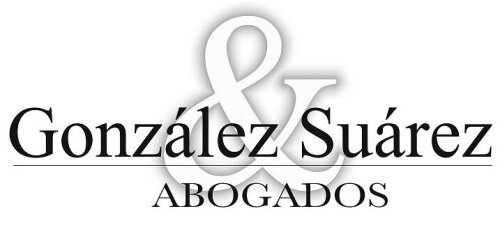Best Debt & Collection Lawyers in Palencia
Share your needs with us, get contacted by law firms.
Free. Takes 2 min.
List of the best lawyers in Palencia, Spain
About Debt & Collection Law in Palencia, Spain
Debt and collection law in Palencia, Spain refers to the legal framework that governs how debts are managed, collected, and enforced between creditors and debtors. The process is shaped by both national Spanish law and local court procedures in Palencia. It covers various aspects such as the right to request payment, steps for amicable and judicial collection, consumer protections, and limitation periods for claiming debts. Navigating this area can be complicated, especially when emotions run high or communication breaks down between the involved parties.
Why You May Need a Lawyer
Legal advice in debt and collection matters can be crucial for both creditors and debtors. Common situations that may require a lawyer’s help include:
- Recovering outstanding payments from individuals or businesses who have not paid invoices or loans
- Disputing the validity or amount of a claimed debt
- Negotiating payment plans or debt settlements
- Addressing harassment or unfair collection practices by agencies
- Receiving court notices or being sued for unpaid amounts
- Understanding the legal process for debt enforcement or bankruptcy
- Defending against seizure of assets or wage garnishment
Whether you are trying to collect money owed or defending yourself against collection actions, a lawyer can clarify your rights, responsibilities, and guide you through the correct legal steps.
Local Laws Overview
In Palencia, as in the rest of Spain, debt and collection processes are regulated primarily under the Civil Code, the Civil Procedure Act (Ley de Enjuiciamiento Civil), and consumer protection laws. Some key aspects of local and national regulations include:
- The extrajudicial claim process - creditors are generally required to demand payment out of court before starting a lawsuit
- The "monitorio" or payment order procedure - a simplified legal process for undisputed debt recovery
- Limitation periods ("prescripción") - the timeframes within which debts can be legally claimed, which vary depending on the type of debt
- Consumer protections against abusive or misleading collection practices
- Rules for interest rates, late fees, and documentation required for proving the existence and amount of a debt
- The possibility for debtors to seek insolvency protection (bankruptcy) if unable to pay multiple debts
Local courts in Palencia handle the judicial debt collection process and issue orders for enforcement if a debt is legally recognized. Every case is unique, making legal advice important for understanding your specific rights and obligations.
Frequently Asked Questions
What should I do if I receive a formal notice to pay a debt in Palencia?
You should carefully review the notice to check the amount and the basis of the debt. Do not ignore the notice. If you agree with the claim, try to settle the debt promptly. If you dispute it, seek legal advice before responding.
Can a creditor contact me directly to collect a debt?
Yes, creditors can contact you directly or through debt collection agencies, but they must respect your rights and avoid harassment, threats, or misleading conduct. Repeated abusive communication is not allowed.
What is the "monitorio" procedure?
The "monitorio" is a special simplified court process for uncontested monetary claims. It allows creditors to apply for an order to pay without a full trial if the debt is clear and documented.
How long does a creditor have to claim a debt through court?
Limitation periods can vary. Generally, the standard period is 5 years for most personal and commercial debts incurred after 2015. Some specific debts may have shorter or longer periods.
Can my wages or property be seized for unpaid debts in Palencia?
If a court awards a payment order and you do not pay voluntarily, enforcement proceedings may follow. This can include wage garnishment, bank account freezing, or seizure of certain assets, but legal exemptions exist to protect minimum living standards.
What are my rights if I am unable to pay my debts?
You have the right to request payment plans or negotiate settlements. If your situation is severe, you may qualify for insolvency proceedings (bankruptcy) to restructure or discharge certain debts under court supervision.
Do I need a lawyer for debt collection court cases?
While not always mandatory in simpler cases (especially for lower-value claims), a lawyer is highly recommended for navigating legal procedures, protecting your rights, and increasing your chances of a favorable outcome.
Are debt collection agencies regulated in Spain?
Yes, agencies must comply with consumer protection laws and may not engage in harassment, threats, or share your information unlawfully. If you believe a collection agency has behaved improperly, you may file a complaint.
What documents should I keep related to the debt?
You should keep all contracts, invoices, payment receipts, correspondence, court documents, and any written agreements regarding the debt. Good documentation is crucial for defending your position.
Can debts be negotiated or settled out of court?
Yes, it is common to reach agreements outside of court. Both parties may negotiate repayment plans, write-offs, or discounts. A lawyer can help you propose or review settlement offers.
Additional Resources
People seeking help with debt and collection issues in Palencia can benefit from the following resources:
- Oficinas de Información al Consumidor (Consumer Information Offices) - Provide guidance on consumer rights and complaints related to collections.
- Ilustre Colegio de Abogados de Palencia (Bar Association of Palencia) - Can refer you to local lawyers specializing in debt and civil law.
- Juzgados de Primera Instancia (First Instance Courts) - Handle judicial debt collection and enforcement procedures in Palencia.
- Ayuntamiento de Palencia (City Council) - May offer information or refer you to support services for financial hardship.
- Agencias de defensa del consumidor (Consumer protection agencies) - Assist with complaints about abusive collection practices.
Next Steps
If you need legal assistance in debt and collection matters in Palencia, consider the following actions:
- Gather all documents related to the debt, including contracts, payment records, and correspondence.
- Write down a clear, chronological summary of events related to the debt or collection issue.
- Consult with a lawyer who specializes in debt and collection law to review your case and discuss options.
- If you are contacted by a debt collector or receive court documents, do not ignore them - seek immediate legal advice to avoid missed deadlines.
- Consider negotiating repayment terms or settlements where appropriate, with legal guidance on the terms.
- Make use of consumer protection services if you are facing unfair collection practices.
Every debt and collection scenario is unique. Timely legal advice is often essential to protect your rights, minimize risks, and find the best solution for your situation in Palencia, Spain.
Lawzana helps you find the best lawyers and law firms in Palencia through a curated and pre-screened list of qualified legal professionals. Our platform offers rankings and detailed profiles of attorneys and law firms, allowing you to compare based on practice areas, including Debt & Collection, experience, and client feedback.
Each profile includes a description of the firm's areas of practice, client reviews, team members and partners, year of establishment, spoken languages, office locations, contact information, social media presence, and any published articles or resources. Most firms on our platform speak English and are experienced in both local and international legal matters.
Get a quote from top-rated law firms in Palencia, Spain — quickly, securely, and without unnecessary hassle.
Disclaimer:
The information provided on this page is for general informational purposes only and does not constitute legal advice. While we strive to ensure the accuracy and relevance of the content, legal information may change over time, and interpretations of the law can vary. You should always consult with a qualified legal professional for advice specific to your situation.
We disclaim all liability for actions taken or not taken based on the content of this page. If you believe any information is incorrect or outdated, please contact us, and we will review and update it where appropriate.










